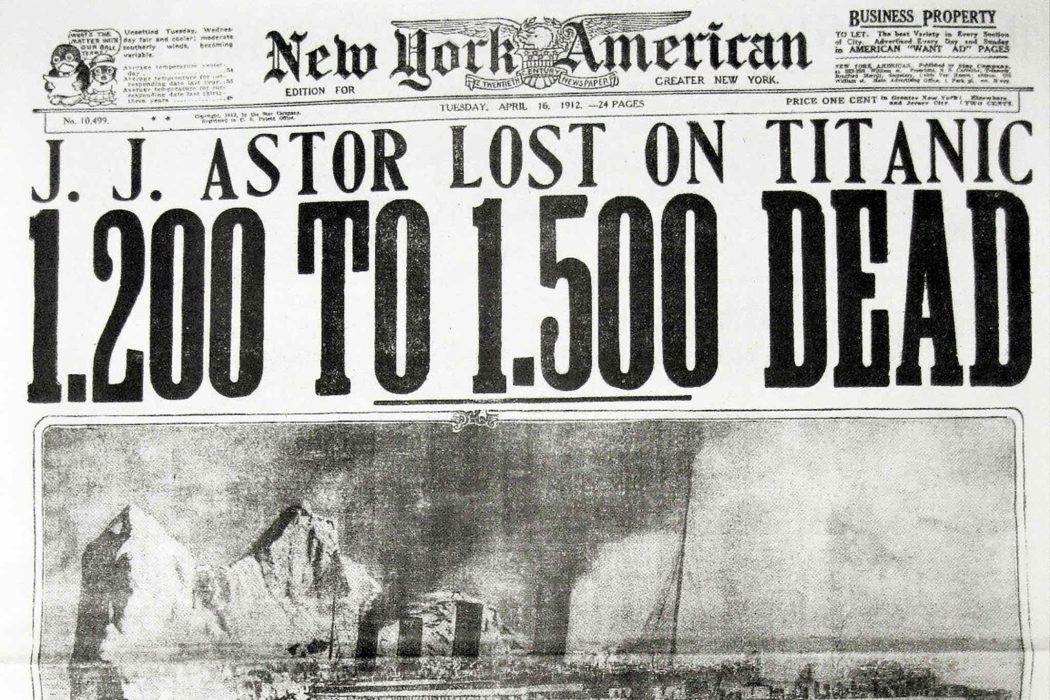WITHIN FIFTEEN MINUTES A swarm of 4,000 faces had taken possession of the streets north and east of the New York Times building at West 43rd Street. They stared at three of the building’s windows along Broadway, which displayed three sheets of scrolling paper, thirty-three inches wide by seventy inches high. Three synchronized printers pressed letters onto the surface large enough to be read from the street, typed on a special device that enabled the newsroom to deliver updates to the waiting public in real time..
It was 7:30 p.m. yesterday – April 15, 1912 – and many of the watchers were coming home from work after a busy Monday. They carried the evening editions of the newspapers home with them, which reported what, until that moment, had been the latest news: the Allen liner Virginian had taken the Titanic in tow and the two ships were en route to Halifax. Now they stopped and gaped in disbelief as the Times’s news ticker brought home to them for the first time the true scale of the catastrophe.
“How dare you,” one distraught man asked the typist, “how dare you say they’re all lost now when they were saying all day they were all saved?”
The tragic news had streamed out of Times Square on the tongues of pedestrians, glided up Broadway along streetcar rails, piloted automobiles around the statue of Columbus at the southwest corner of Central Park, and spread through the neighborhoods of the Upper West Side, where the Hotel Ansonia stood at Broadway and 73rd Street.

‘Abdu’l-Bahá had made friends with passengers on the Titanic. Col. John Jacob Astor IV and his young wife, Madeleine, had traveled with him on the Cedric from Alexandria, but they had disembarked at Naples to catch the train to Cherbourg, where they planned to board the doomed liner. ‘Abdu’l-Bahá, himself, had been offered tickets on the ship, but had chosen to take the Cedric direct from Naples instead. Now his friends gave thanks to God that he had declined their offer and took another boat.
One night a few days later he spoke of the ship to an audience in Washington, DC, where the Senate hearings into the disaster had just begun. “Within the last few days a terrible event has happened in the world,” he said, “an event saddening to every heart and grieving every spirit.” “A number of beautiful souls passed beyond this earthly life.”
“When I think of them,” ‘Abdu’l-Bahá continued, “I am very sad indeed. But when I consider this calamity in another aspect I am consoled by the realization that the worlds of God are infinite; that though they were deprived of this existence, they have other opportunities in the life beyond, even as Christ has said, ‘In my Father’s house are many mansions.’”
“They were called away from the temporary and transferred to the eternal; they abandoned this material existence and entered the portals of the spiritual world. Foregoing the pleasures and comforts of the earthly, they now partake of a joy and happiness far more abiding and real, for they have hastened to the Kingdom of God.”






